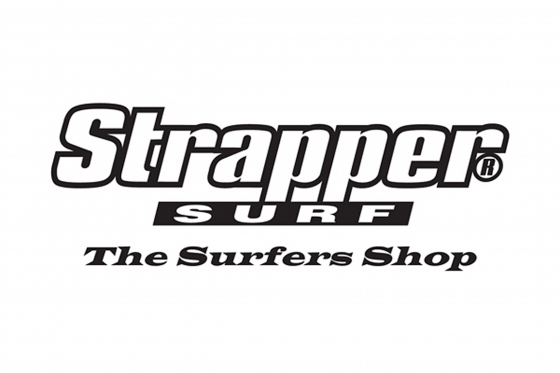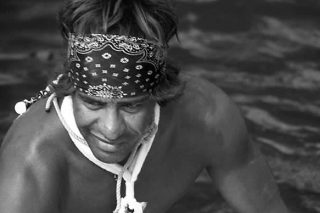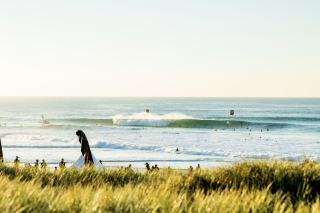ASB MAGAZINE: Darren Handley is offering the opportunity to invest in DHD Surf with an investment as small as $250. Not via the traditional method of a share market listing, but via an innovative “crowd funding” platform called Equitise, that we earlier reported HERE. Importantly the investment will not be listed on the share market which has important considerations discussed below.
DHD has a plan to extend its brands beyond traditional surfboards into epoxy and soft boards, fashion and accessories. This strategy certainly has merit, but also high risk for outside investors.
Darren Handley founded the business in 1984, is still involved and owns 35%. The largest shareholder, with 38.5% is the Chief Marketing Officer, Matthew Bailey. Bailey has a history in advertising and consumer food products. The CEO, Tony Emerton has a 25 year history in finance and equity markets with global banks Citi and Credit Suisse and owns a decent amount of options which keeps his interests aligned.
DHD makes most of its money from traditional polyurethane surfboards, however is looking to branch into epoxy boards, soft boards, apparel and accessories. To this end, DHD acquired 80% of Modom in April 2018. DHD has distribution agreements in Europe, Brazil and Asia and will look to plug Modom’s range into these markets. The company is yet to crack the US retail market but has plans for a “stealth” attack – i.e. direct to consumer.
The brand is strong and is enhanced by a solid team of sponsored riders including Mick Fanning, Stephanie Gilmore, Wilko, Owen Wright, Jordy, Taj, Dusty etc, who have a combined social media reach of over 4 people. Brand extension into fashion and accessories has been enormously successful over the years (look no further than the Rip Curl wetsuit company, or Globe footwear, FCS etc). And the markets are massive.
DHD is seeking to raise between $500,000 and $2.5m from new investors. Depending on how much is raised in the offer, these investors will own between 2% and 11% of the company. The implied valuation of DHD Surf at the offer price of $25 per share is $20m (before the additional money is raised).
The company plans to use the funds for two primary reasons; building inventory and consolidating its properties. Assuming the full $2.5m is raised, DHD will spend around $1m to build inventory in its newer ranges (apparel etc), and just shy of $1m on its properties. The remainder will be put into marketing and product development.
The company expects to generate sales of $9.3m this financial year and generate a post-tax profit of roughly $900,000. Therefore, at the implied valuation, investors are paying 22 times FY19 earnings for their stake in the company, which on the surface is not cheap for an unlisted company. But that ignores the potential for strong medium term growth.
Investing in DHD Surf allows you to benefit from the potential growth in the company however you need to take a long term view given that there is no market to sell your shares if you change your mind. Given that your money is tied up, you’d need to be comfortable that there will be strong earnings growth and cash generation, which will translate into dividends, and ideally an “exit” at some point allowing you to sell your shares. Ideally this exit could be a sharemarket listing or a takeover. Right now, many of the obvious acquirers or DHD are in turnaround mode under private equity ownership (Billabong, Surfstitch etc), but in five or ten years’ time , the game could be back on.
Other risks are worth considering. Growing any brand requires heavy investment in marketing and working capital (inventory). So, the cash requirements could exceed current expectations requiring further funding. Further, extending the brand into fashion, accessories, soft boards and epoxy boards always carries the risk of product quality impacting on the market’s perception of the core range.
In summary, this investment has some exciting long term upside potential, and should be considered high risk. The key management certainly have good reason to make the investment a success given their shareholdings in the company and new investors should seek independent advice before getting on board.
ABOUT THE AUTHOR; Ed Prendergast is a finance analyst with Pengana Capital. The Pengana Capital Group is a diversified funds management group specialising in listed equities. Founded in 2003 and headquartered in Sydney, with offices in Melbourne and Singapore, Pengana currently manages over AUD$3 billion across a range of international and Australian equity strategies. Ed Prendergast was twice ranked the top small companies’ broking analyst in Australia by BRW magazine.










